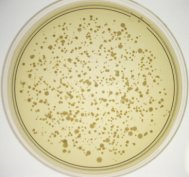Scientists in the US have discovered large numbers of soil-dwelling bacteria that are not only resistant to multiple classes of antibiotics, they also eat them!
 The findings have exposed a large, previously unrecognised antibiotic-resistant bacterial "reservoir", which could act as a source of resistance genes capable of producing superbugs.
The findings have exposed a large, previously unrecognised antibiotic-resistant bacterial "reservoir", which could act as a source of resistance genes capable of producing superbugs.
Writing in Science, Harvard researcher George Church and his team made the discovery accidentally whilst testing bacteria isolated from 11 different soil samples for their ability to break down cellulose, the woody material found in plant stems. They added some antibiotics to their cultures as a control, assuming that bugs ought not to be able to metabolise the drug molecules. They were therefore shocked to see some of the bacteria not just tolerating but actively consuming the antibiotics as a source of food!
The bugs they studied included relatives of common human pathogens, and many of them were able to break down multiple different types of antibiotic molecules.
Consequently, warn the team, because of their close similarity, human pathogens could obtain resistance genes from super-resistant environmental bugs like these living on antibiotics in the environment...
- Previous Temperature sensitive paint
- Next Feed a cold, for definite










Comments
Add a comment